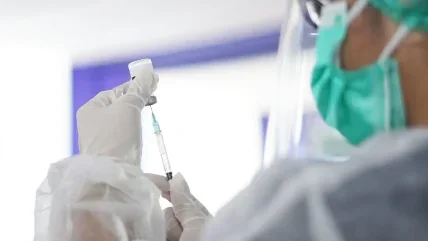
Italian pharmaceutical firm Recordati has agreed to acquire French drugmaker Sanofi’s biologic drug Enjaymo (sutimlimab) to expand its rare diseases portfolio.
Enjaymo is a humanised monoclonal antibody indicated for the treatment of haemolysis in adults with cold agglutinin disease (CAD), a rare B-cell lymphoproliferative disorder.
Under the terms of the agreement, Recordati will make an upfront payment of $825m and additional commercial milestone payments of up to $250m.
The milestone payments are contingent on net sales reaching certain thresholds.
The acquisition is expected to be completed by the end of 2024, subject to regulatory approvals.
Recordati intends to fund the transaction using existing cash and new bank debt facilities.
Recordati CEO Rob Koremans said: “This transaction is in line with our broader strategy, reaffirms our commitment to the Rare Diseases space and is complementary to our Oncology portfolio, specifically Sylvant.
“Enjaymo further expands our Rare Diseases footprint in the US, Japan and Europe, and will contribute positively to both our top and bottom lines.
“Most importantly, with a strong clinical profile and as the only product approved for the treatment of CAD, Enjaymo addresses a serious unmet medical need for patients living with this debilitating disease.”
Enjaymo is designed to selectively target and inhibit C1s, which is a part of the innate immune system, to prevent the abnormal destruction of healthy red blood cells.
In 2022, Enjaymo granted approvals from the US Food and Drug Administration (FDA), the European Commission (EC) and the Japanese Ministry of Health, Labor and Welfare (MHLW).
According to Recordati, Enjaymo is the only targeted drug approved for the treatment of CAD.
The drug generated around €100m in revenue over the last 12 months as of August 2024 and is expected to generate more than €150m in revenue in FY 2025.
The transaction is expected to be immediately accretive at the EBITDA level, with a margin above the current rare diseases average as of 2025, said the Italian drugmaker.






